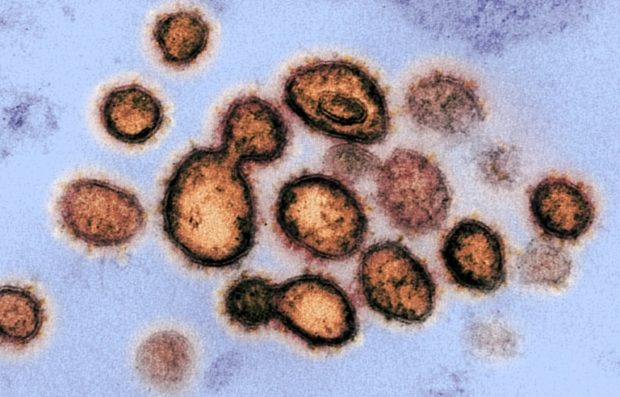To find COVID-19 cure, researchers worldwide given access to supercomputers

An image of the SARS-CoV-2, the virus that causes COVID-19. Image: National Institutes of Health/AFP via AFP Relaxnews
The United States government, along with academic and industry leaders, has given researchers access to some of the planet’s most powerful supercomputers in a bid to combat the disease caused by the novel coronavirus called COVID-19.
The Federal government is calling on researchers around the globe to join in the effort to make use of the resources of the COVID-19 High Performance Computing (HPC) Consortium to hasten the creation of a cure and vaccine against the pandemic.
Researchers are invited to submit project proposals (no longer than two pages) to the Extreme Science and Engineering Discovery Environment (XSEDE) website. Once approved, the researchers will have access to the consortium’s vast amount of computing power.
XSEDE is a virtual organization funded by the National Science Foundation (NSF) that integrates and coordinates the sharing of advanced digital services, including supercomputers, as per its website.
“America is coming together to fight COVID-19, and that means unleashing the full capacity of our world-class supercomputers to rapidly advance scientific research for treatments and a vaccine,” U.S. chief technology officer Michael Kratsios said according to the White House yesterday, March 13.
The HPC Consortium currently provides portions of 16 supercomputing systems, which pack the power of 330 petaflops, 775,000 CPU cores, and 34,000 GPUs.
Tech giants International Business Machines (IBM), Amazon Web Services, Google Cloud, Hewlett Packard Enterprise and Microsoft have joined forces with academia leaders Massachusetts Institute of Technology and Rensselaer Polytechnic Institute for the project. Several labs under the Department of Energy National Laboratories and federal agencies NSF and the National Aeronautics and Space Administration (NASA) are partners as well.
Researchers who will gain access to the Consortium are expected to publish their work in the open scientific literature, according to XSEDE.
There are 332,930 confirmed COVID-19 cases worldwide, while 14,510 people have died, as of yesterday, March 23. The disease currently posts a mortality rate of 4.36%. JB
RELATED STORIES:
Crowdsourced virtual supercomputer revs up virus research
For more news about the novel coronavirus click here.
What you need to know about Coronavirus.
For more information on COVID-19, call the DOH Hotline: (02) 86517800 local 1149/1150.
The Inquirer Foundation supports our healthcare frontliners and is still accepting cash donations to be deposited at Banco de Oro (BDO) current account #007960018860 or donate through PayMaya using this link.